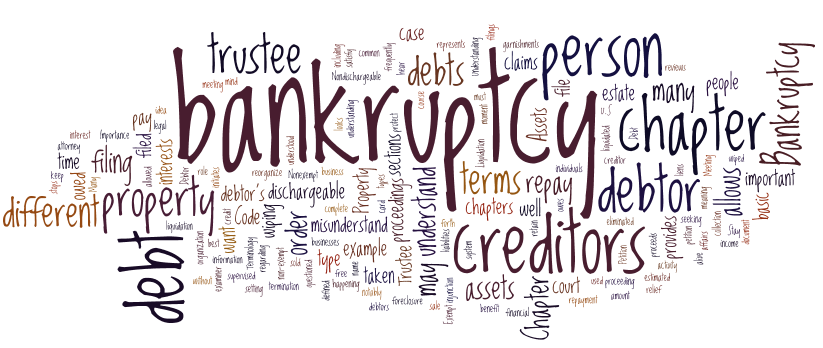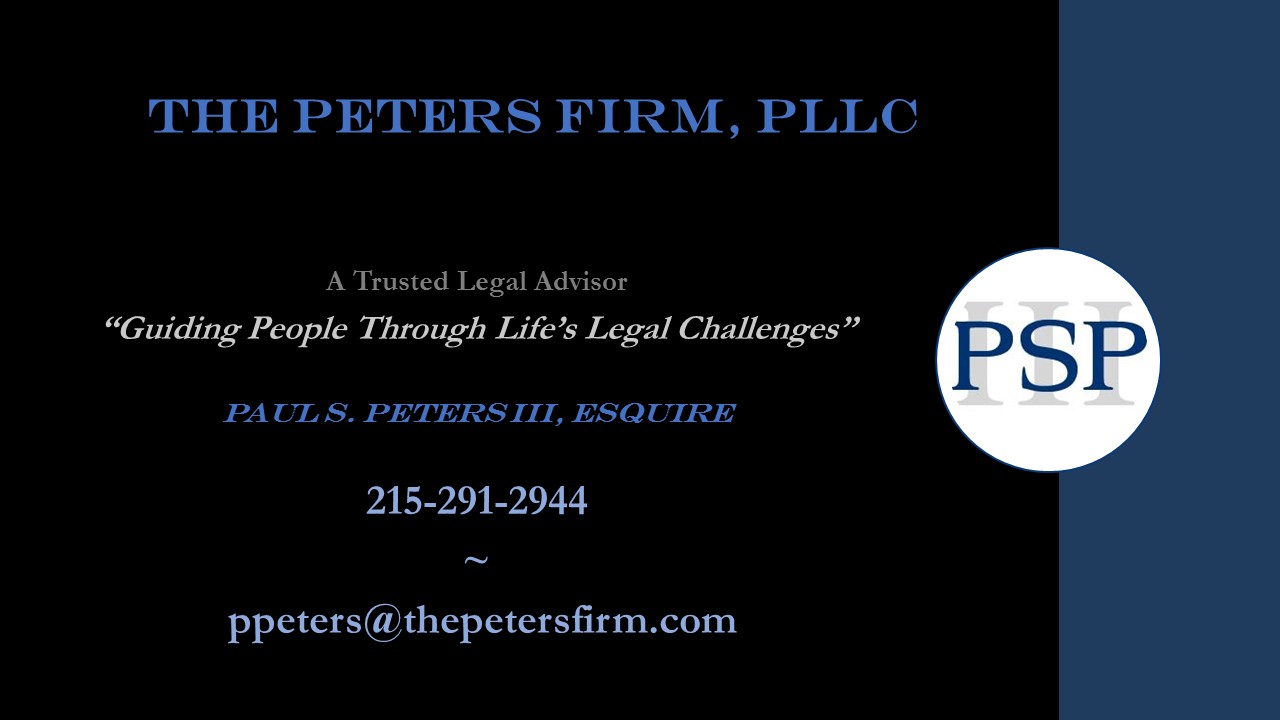
Bankruptcy Terminology
Bankruptcy Terminology and Definitions
Debtor(s) – Person(s) filing Bankruptcy must be a single person or married couple.
Creditor(s) – Companies or People the Debtor owes money
Insolvency – When Debts and Liabilities exceed Assets
Secured Debt – Debt that is attached to the property (mortgage or car loan)
Unsecured Debt – Debt that is not attached to the property (credit cards, medical bills)
Default – Failure to fulfill an obligation, especially to repay a loan
Arrears – Money that is owed and should have been paid earlier
Petition and Schedules – The documents filed with the Court to initiate a Bankruptcy in which the Debtor lists information such as all real estate owned, all personal property owned, all creditors owed money, monthly income and expenses, leases, co-debtors, and transfers of property within the last two years
Automatic Stay – The legal action whereby the filing of a Bankruptcy forbids creditors from taking any actions or contacting the Debtor
Exemptions – The amount of Value or Equity you are permitted in certain property
Equity – The value of your Home or other Personal Property after any debts against the property are subtracted from the Property’s Fair Market Value
(Home worth $350,000 – Mortgage of $125,000 = $225,000 in equity)
Means Test – The mathematical calculation used by the Court and Trustee to determine if one is eligible for a Chapter 7 Bankruptcy. Is based on the average income in the filer’s state and county and average expenses based on IRS standards and local standards
Discharge – When the Court relieves one of there obligation to pay debts through a Bankruptcy Filing
Trustee – An attorney hired by the court to manage and oversee your Bankruptcy Filing
341 Hearing – The court hearing you attend with your attorney to meet with the Trustee and review your Bankruptcy Filing and answer questions
Chapter 13 Plan – The Payment Plan proposed to the Trustee and Court to pay back the defaulted
Confirmation Hearing – The Court Hearing in a Chapter 13 Bankruptcy where the Trustee and Judge either accepts or rejects one’s Chapter 13 Plan proposal
Foreclosure – The Act of a Mortgage Company attempting to take ownership or sell one’s property
Repossession – When a creditor attempts to take ownership of secured personal property debt such as a Car
A Trusted Pennsylvania
Bankruptcy Attorney
If you are considering filing a Chapter 7 or Chapter 13 Bankruptcy, contact the trusted and experienced Montgomery, Philadelphia, Bucks, Delaware, Chester, Lehigh, Lancaster, Northampton, Berks, Adams, Cumberland, Dauphin, Franklin, Fulton, Huntington, Juniata, Lebanon, Mifflin, Perry, Snyder, York Bradford, Cameron, Centre, Clinton, Lycoming, Montour, Northumberland, Potter, Sullivan, Tioga, Union, Carbon, Columbia, Lackawanna, Luzerne, Monroe, Pike, Schuylkill, Susquehanna, Wayne, and Wyoming County Chapter 7 and Chapter 13 Bankruptcy Attorney Paul S. Peters III, Esquire at:
215-291-2944
ppeters@thepetersfirm.com



